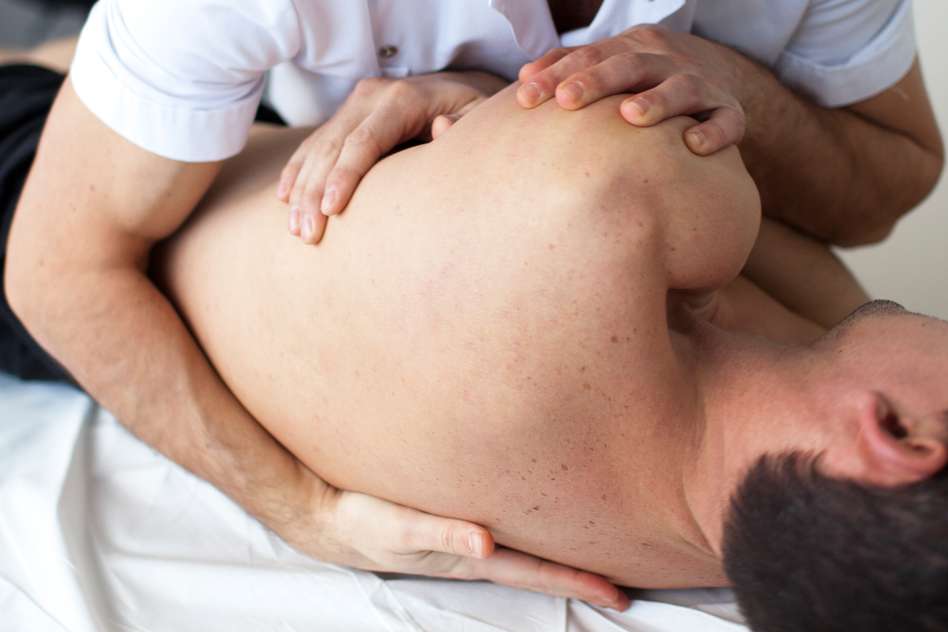medical negligence
Pressure sores claims: Medical negligence

In the UK, patients in hospital and those living in care homes, benefit from a high standard of nursing and health care. However, despite progress in the management of pressure sores it remains a sombre fact that medical negligence claims are far from uncommon.
In this article Sarah Stocker, Associate Solicitor in Tees’ medical negligence team, explores what pressure sores are; the causes; what steps healthcare professionals should take to minimise the risk of one developing and how you can claim for compensation following the development of a pressure sore or poor management of one.
- What are pressure sores?
- What causes pressure sores?
- Risk of developing pressure sores
- NICE (National Institute for Health & Care Excellence) guidelines relating to pressure sores
- What complications can emerge due to a pressure sore?
- Making a medical negligence claim for pressure sores
What are pressure sores?
Pressure sores and decubitus ulcers are caused when an area of skin or the tissue below is damaged because of pressure, causing a decrease in the blood supply. Typically, they occur in a person confined to a bed or a chair most of the time by an illness: as a result, they are sometimes referred to as “bedsores” or “pressure ulcers”.
What causes pressure sores?
The risk of developing pressure sores are related to how fragile or delicate the skin of the person in question is (not typically time related). This should be identified by a nurse or medical professional who should carry out risk assessment. The results will help determine which patients are at most at risk of developing pressure sores.
There are three primary contributing factors for bedsores:
Pressure. Sustained pressure can limit the blood flow which is essential for delivering oxygen and other nutrients to tissues. Without these essential nutrients, skin and nearby tissues are damaged and might eventually die. Constant pressure on any part of your body can lessen the blood flow to tissues.
Limited mobility, this kind of pressure tends to happen in areas that aren't well padded with muscle or fat and that lie over a bone, such as:
- the spine,
- tailbone,
- shoulder blades,
- hips, heels and elbows
Friction. Friction occurs when the skin rubs against clothing or bedding. It can make fragile skin more vulnerable to injury, especially if the skin is also moist.
Risk of developing pressure sores
People considered to be at high risk of developing a pressure sore will usually have multiple risk factors identified during risk assessment with or without a validated risk assessment tool. Adults with a history of pressure ulcers or a current pressure ulcer are also considered to be at high risk.
An assessment of pressure sore risk should be based on clinical judgement and/or the use of a validated scale such as the Braden scale, the Waterlow scale or the Norton risk‑assessment scale for adults and the Braden Q scale for children.
There are 4 grades of pressure sores, with a grade 1 pressure sore being the least harmful and Grade 4 representing the most high-risk:
Grade 1: discolouration of the skin, which may feel warm, spongy or hard and causes a degree of pain or itchiness in the affected area
Grade 2: partial skin loss, presenting as an open wound or blister
Grade 3: a deeper wound that reaches deeper levels of the skin, presenting like a crater on the skin
Grade 4: a very deep wound that may reach muscle or bone, potentially with extensive necrosis to the underlying tissue
While the majority of bedsores are identified at an early grade and so can be effectively managed and treated without any serious consequences, a Grade 3 or 4 pressure sore can lead to dangerous complications, which can often be the basis for a medical negligence claim.
NICE (National Institute for Health & Care Excellence) guidelines relating to pressure sores
What the quality statement means for patients, service users and carers
“People who have a high risk of developing pressure ulcers are given information by a healthcare professional about preventing pressure ulcers from developing. This should be tailored to the person's needs and should include advice about the causes and early signs of pressure ulcers, and information on how pressure ulcers can affect health and quality of life. The information should also include a demonstration of how to use any equipment (for example, any mattresses or cushions) that may be supplied, and information about what people can do to help prevent pressure ulcers from developing.”
As well as a risk assessment, NICE (The National Institute for Health & Care Excellence) has also published guidelines on the prevention and management of pressure ulcers. As clinical negligence experts, these guidelines help us assess whether a healthcare provider fulfilled their duty of care to their patient or if their actions (or inactions) would be considered negligent.
What complications can emerge due to a pressure sore?
Complications can be very serious or even life-threatening, including:
- Cellulitis. Cellulitis is an infection of the skin and connected soft tissues. It can cause warmth, redness and swelling of the affected area. People with nerve damage often do not feel pain in the area affected by cellulitis.
- Bone and joint infections. An infection from a pressure sore can burrow into joints and bones. Joint infections (septic arthritis) can damage cartilage and tissue. Bone infections (osteomyelitis) can reduce the function of joints and limbs.
- Cancer. Long-term, nonhealing wounds (Marjolin's ulcers) can develop into a type of squamous cell carcinoma.
- Sepsis. Rarely, a skin ulcer leads to sepsis.
Making a medical negligence claim for pressure sores
While in certain instances pressure sores are unpreventable, in some cases they can be attributed to substandard or negligent care. This could be due to:
- A failure to properly assess and calculate a patient’s risk score, meaning their risk of developing a pressure sore is not fully appreciated and the correct level of prevention measures implemented
- A failure to follow the prevention plan recommended or generally inattentive or negligent nursing care
- Failure to monitor the patient for signs of bedsores developing during their stay in hospital or care
- Failure to identify symptoms of a pressure sore early enough before it developed into an open wound or infection
From 1 April 2000 to 31 March 2018 NHS Resolution received 96 claims relating to pressure ulcers suffered by women in maternity units. Of these, 87 claims were awarded compensation, the cost to the NHS was £2,473,244. NHS Resolution have produced a “Did You Know” Guide to Maternity Pressure Ulcers which highlights some common themes and the impact of pressure damage on women.
Pressure sores can be more serious than you may have anticipated. We take negligence claims of this nature as seriously as we would any other incident. If you or someone you care about has suffered because of negligible nursing care, talk to our team today. Our no win no fee lawyers are ranked Tier 1 in the Legal 500 and we’re here to help you.
Find out more about the process of how to make a medical negligence claim.
By working closely with nursing care experts and comprehensively retracing the treatment that took place, we provide our clients or their loved ones with an assessment, establishing what happened, and more specifically working out if there is likely to be a case for compensation to be paid. Once this is established, we are there to guide you through the process of a pressure sore claim, with a firm focus on ensuring you receive the compensation, justice and closure you are seeking.
Call for a FREE initial consultation on 0800 013 1165
Tees is here to help
We have many specialist lawyers who are based in:
Cambridgeshire: Cambridge
Essex: Brentwood, Chelmsford, and Saffron Walden
Hertfordshire: Bishop's Stortford and Royston
But we can help you wherever you are in England and Wales.
Disclaimer
All content contained within this article is meant for general information only – this should not be treated as a substitute for medical advice from your doctor or another healthcare provider. If you require legal advice specific to your situation, please contact our team directly.
Chat to the Author, Sarah Stocker
Associate, Medical Negligence, Cambridge office
Meet Sarah
- Areas of expertise
- Accreditations
- Testimonials
Mr E
Cambridge
'I was extremely satisfied with the overall professionalism of the people I dealt with, particularly of Sarah Stocker, who acted as my usual contact. I needed personal and empathetic handling of my case and that is exactly what I received'
Georgia Rebane
Peterborough
'Sarah really went the extra mile to help me try to understand the legal process. I've never been through anything like this before, so was very grateful to have someone as caring as Sarah to help get a fair outcome'
Mrs V
Chelmsford
'Sarah Stocker explained my medical negligence case, and the likely outcome, very clearly. She kept me fully informed throughout the process and was extremely compassionate and professional. My claim was successfully settled and I'm extremely grateful for the help Sarah gave me and my family'
Barry Skingley
Saffron Walden
'I would recommend Sarah Stocker to anyone who has a similar claim. I could not fault any part of my negligence claim. It was carried out professionally and in a sympathetic way. Throughout the process I was kept informed at every stage. The financial settlement was well above my expectations'
Mrs. C
Bishop's Stortford
'Sarah Stocker’s input into my case was of the highest standard. She was supportive, caring and empathetic. She informed me of details of my and case and gave me feedback as soon as she got it. There was always good communication, Sarah would spend time in phone calls explaining the process. She would always follow up with hard copies on how my case was progressing and she accessed excellent expert reports from the medical profession. Sarah gave very good advice, support and guidance'
Mrs. C
Dunmow
Sarah Stocker explained my medical negligence case, and the likely outcome, very clearly. She kept me fully informed throughout the process and was extremely compassionate and professional. My claim was successfully settled and I'm extremely grateful for the help Sarah gave me and my family.



